When talking about online security, antivirus software, and cybersecurity in general, NortonLifeLock is surely among the pioneers of this field of expertise. With a somewhat decent antivirus solution in place, this company decided to spread its tentacles to the Virtual Private Network industry.
And thus, not long after that, Norton Secure VPN was born, with ambitious promises of rock-solid security, privacy, and anonymity. However, is Norton Secure VPN safe and secure? Is Norton VPN safe to use at all? These are, understandably, the two main questions regarding this provider.
Today, I’ll give you a full security analysis of this provider to be able to answer these questions thoroughly. We’re going to examine its security features, check for IP/DNS leaks, and take a closer look at its privacy policy to see if we’re talking about a no-logs service.
If you’re wondering if Norton VPN is safe and secure, this article will tell you everything you should know in this regard. And if you want a full analysis of this provider, we also have a Norton VPN review that you can check out.
Is Norton VPN Safe to Use? Security Features Examined
To start this security analysis, we first need to see what kind of features Norton VPN offers inside the application. This provider isn’t the most feature-rich on the planet but with a few recent updates, some new functionalities have been added. Let’s check them out.
256-bit AES Encryption
The service uses 256-bit AES encryption, known by many as military-grade encryption. Basically, it’s the highest level of encryption you can get in a Virtual Private Network, which means your connection is untraceable by your ISP or even skilled hackers.
The provider uses this encryption in conjunction with all of its protocols, which is always great. On Windows, macOS, and Android, the provider combines this encryption with WireGuard while iOS users still get AES-256 encryption but with the IKEv2/IPSec protocol.
Automatic Kill Switch
Another important feature of this service is an automatic kill switch. Is Norton VPN safe and secure and does its kill switch work well? To be honest, it is safe and secure if we talk about its kill switch. Besides, this is the main line of defense against IP leaks that occur when your VPN connection drops.
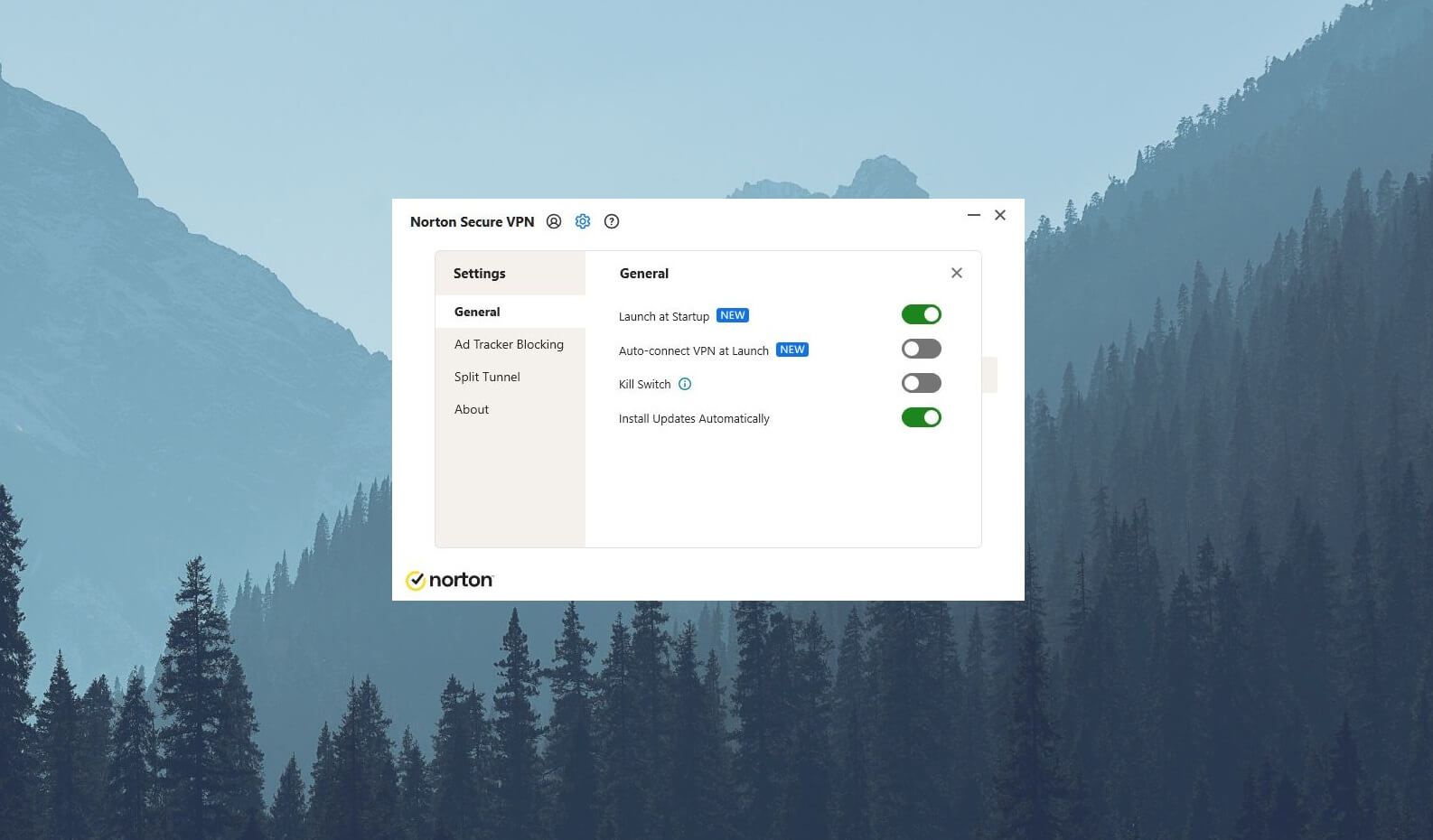
This kill switch, when enabled, will disable your internet connection in this case, preventing you from exposing your IP address to the public eye. I’ve experienced a few connection drops with this provider, only for the kill switch to activate and do its job perfectly.
Split Tunneling
Split tunneling isn’t necessarily a security feature but it’s a very useful tool nonetheless. It lets you exclude certain applications from using a VPN tunnel, which is very handy when using applications that don’t need this advantage.
For example, if you’re using your banking app or eBay, you don’t need to change your VPN location and you need to use your native IP address. In this case, you can enable split tunneling, add these apps to the list, and they won’t be affected by your Virtual Private Network usage.
Ad Tracker Blocker
The final feature I want to talk about is called Ad Tracker Blocker. Ad Tracker Blocker in Norton VPN works impressively, as it blocks Ad Trackers once enabled. However, this feature can only be enabled when connected to a server, so it can’t be used as a standalone feature.
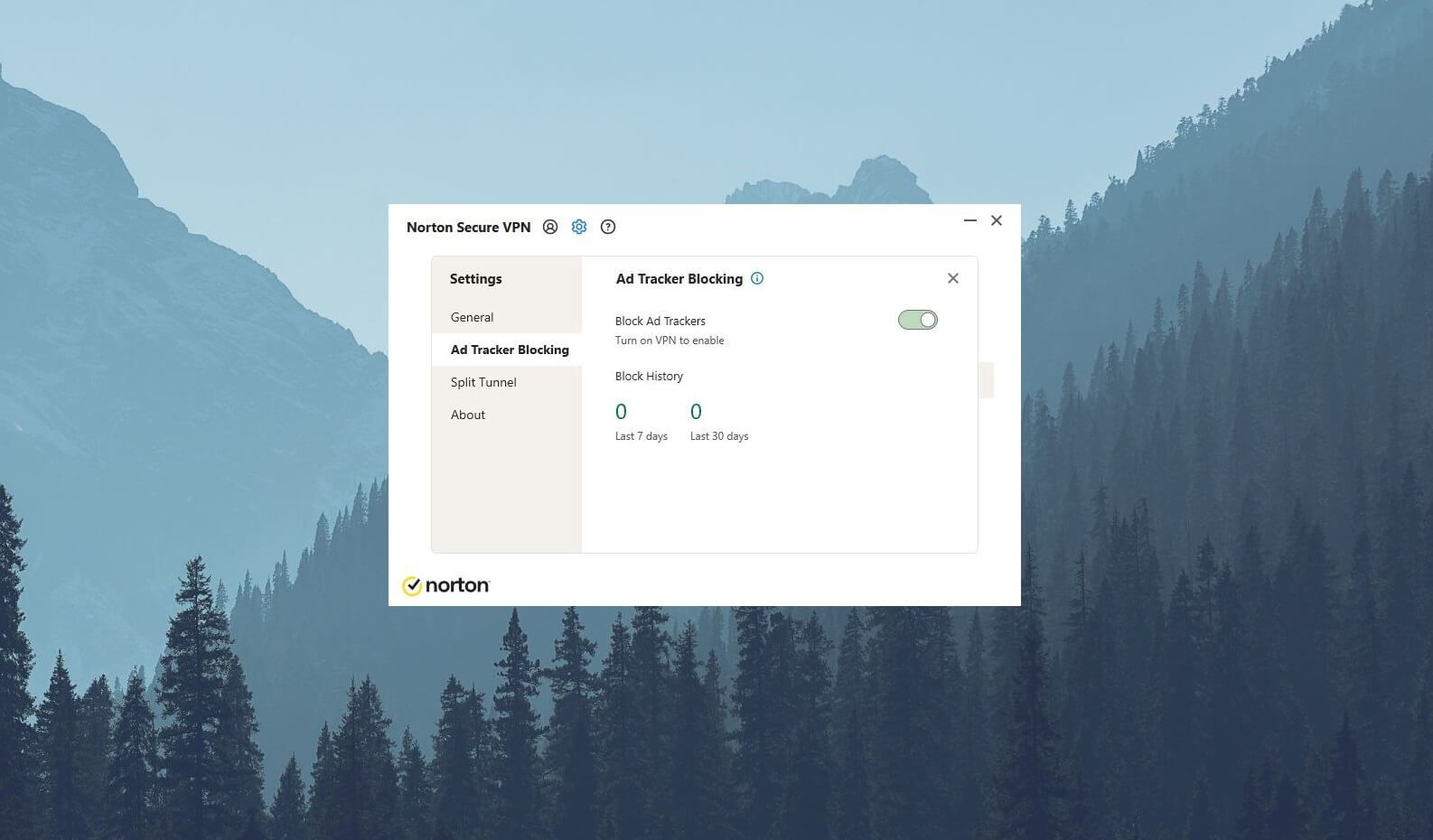
Nevertheless, I found it useful for preserving my privacy whenever I took advantage of Norton VPN. You just need to connect to a server, go to Settings, and turn it ON. That way, all ad trackers are blocked, which prevents advertisers from tracking your online activities and employing targeted ads.
Does Norton VPN Store Logs? Analysis of Its Privacy Policy & Jurisdiction
The answer to the question “is Norton VPN safe and secure?” still isn’t whole, as we need to examine another, even more important aspect of this service. That aspect is the privacy policy but also the jurisdiction that the company belongs to.
Where Is the Company Based?
Let’s start with an easier analysis. Many of you know that NortonLifeLock, the company behind Secure VPN, is based in the United States. Is the US a good jurisdiction for such a service? Of course not. It’s a member of the 5 Eyes alliance, which is a group of countries with privacy-invading laws.
The US, along with the UK, Australia, Canada, and New Zealand, formed a pact that allow these countries to spy on their citizens, collect, and share data with each other. This is quite an alarming practice, as the authorities can request a VPN service to hand out user-related logs at any time.
In my IPVanish review, which is a US provider by the way, I mentioned that it cooperated with the FBI by providing connection logs. HideMyAss, a UK provider, also did the same, so the jurisdiction obviously matters and it’s not on Norton VPN’s side.
Is Norton VPN Safe in Terms of Logging Practices?
This is further exacerbated by the logging practices of Norton Secure VPN, which claims to have a no-logging policy, but in reality, we can see that the provider stores some logs. Let’s take a look at the first part of the privacy policy.
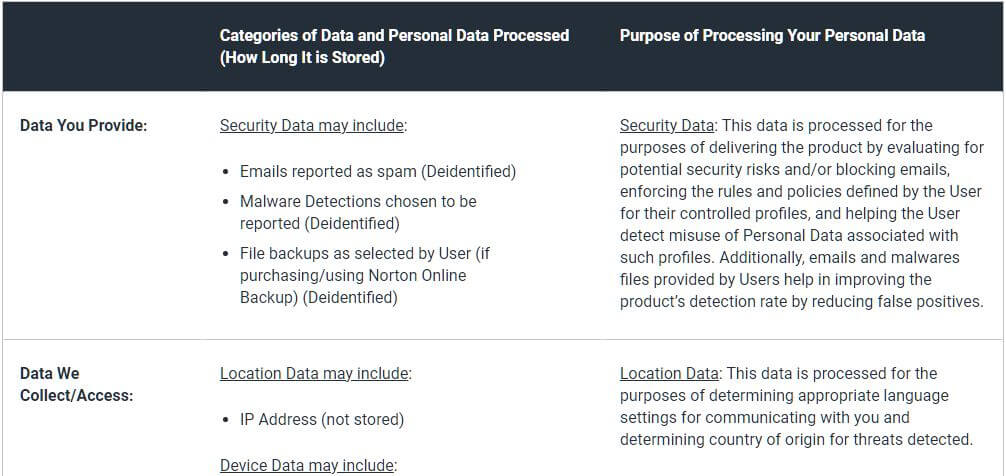
As you can see, the provider can collect or access data related to your IP address, which is referred to as location data. While the reasons for that are benign (check the explanation in the screenshot), knowing that Norton VPN knows your IP address isn’t going to make you happy.
Of course, the provider stores your payment information and email, which is indeed benign and necessary for the service to function. But then, when scrolling down and checking the second part of the privacy policy, things get more alarming.
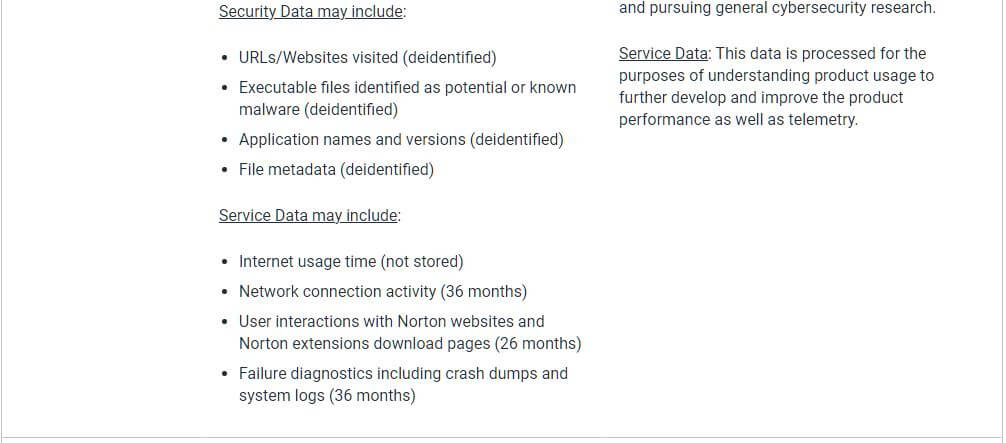
As you can see, this security data is yet again here, and we can see information like visited websites, file metadata, application names, and versions, and even executable files detected as malware. Finally, there’s service data such as internet usage time, network connection activity, and others.
This information, as NortonLifeLock claims, isn’t stored and is either unidentified or stored for a limited period of up to 36 months. Reasons for that are seemingly benign and they include preventing abuse (security data) and violating rules and policies put in place by the provider.
Still, there’s service data that the provider uses to understand product usage and develop new features if need be. But even this service data is too intrusive and includes information that the provider can probably trace to you, as it knows your IP address.
Overall, Norton Secure VPN definitely isn’t a true no-log service, and compared to ExpressVPN or CyberGhost, this one is far from being safe and secure. In comparison, these two providers are 100% safe and secure, with certified no-logging policies and transparency reports (CyberGhost).
Third-Party Audits
With the aforementioned logging practices, the answer to the question “Is Norton VPN safe to use?” is slowly but surely going towards NO. This is even worse considering that there aren’t any third-party audits, which isn’t strange considering the logging practices we talked about.
IP & DNS Leak Tests: Let’s See if There’re Any Leaks
Last but not least, we have only one analysis left to do and that is to see if Norton Secure VPN is safe and secure in terms of preserving your IP and DNS addresses while connected to it. To do this test, I used the website called ipleak.net, which clearly shows your IP and DNS as soon as you visit it.
This time, I used three different server locations, such as the US, the UK, and Japan to make the test more thorough. When not using a Virtual Private Network, the ipleak.net page looks like the one below, where I blurred my addresses for obvious reasons – but you can still see my country:
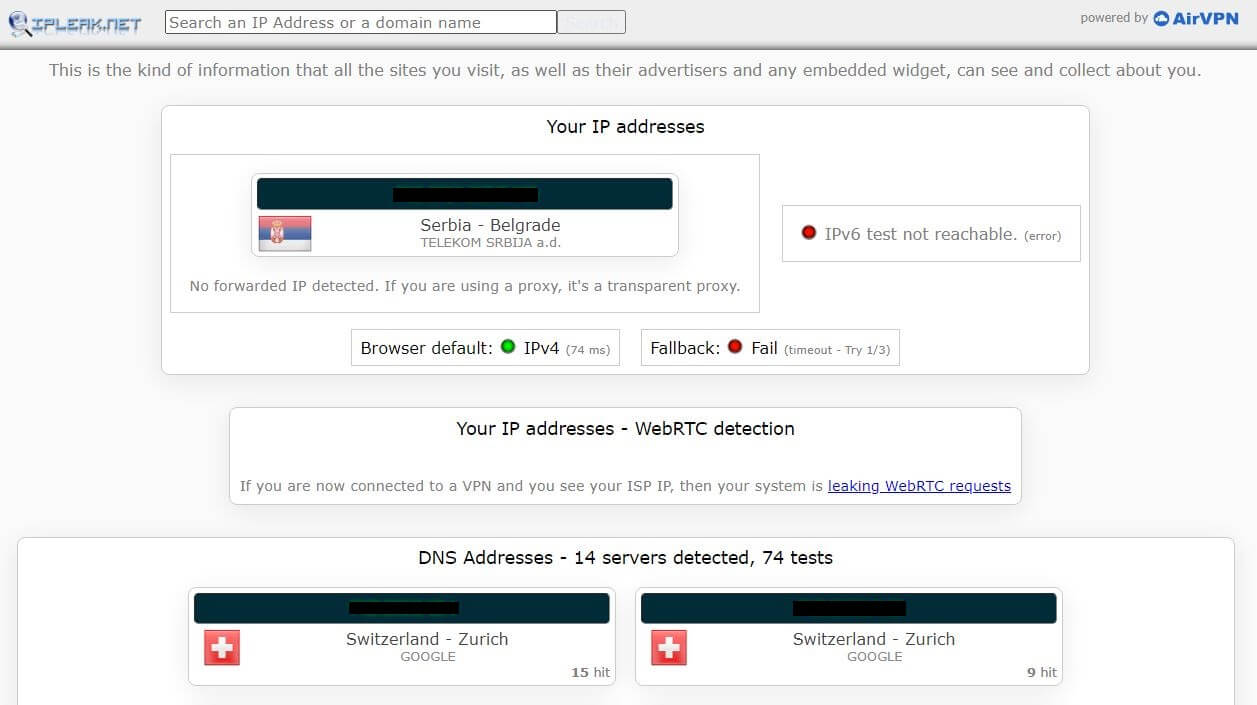
Then, after connecting to a US-based server using Norton Secure VPN and visiting ipleak.net again, I got these results:
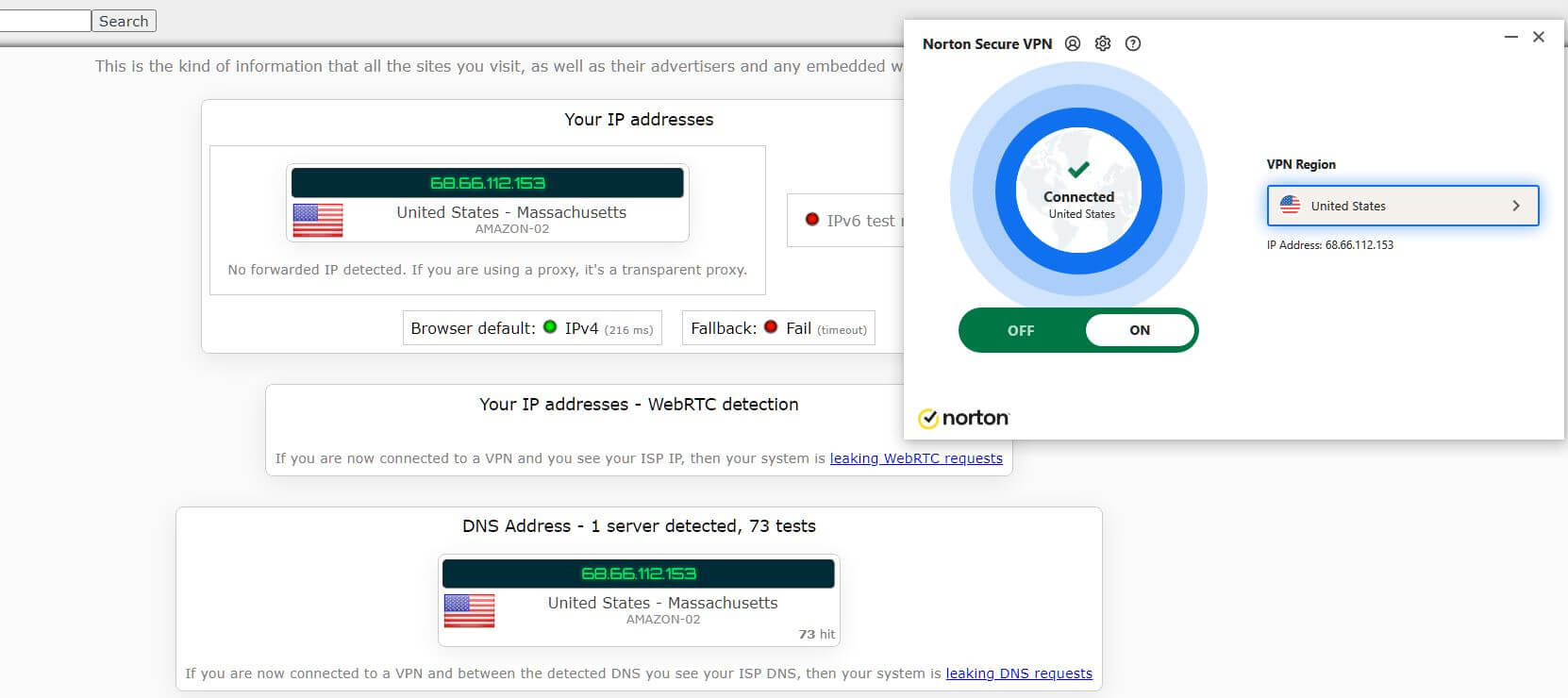
As you can see, this server worked perfectly and I had no issues with IP or DNS leaks. But let’s check the server in the UK:
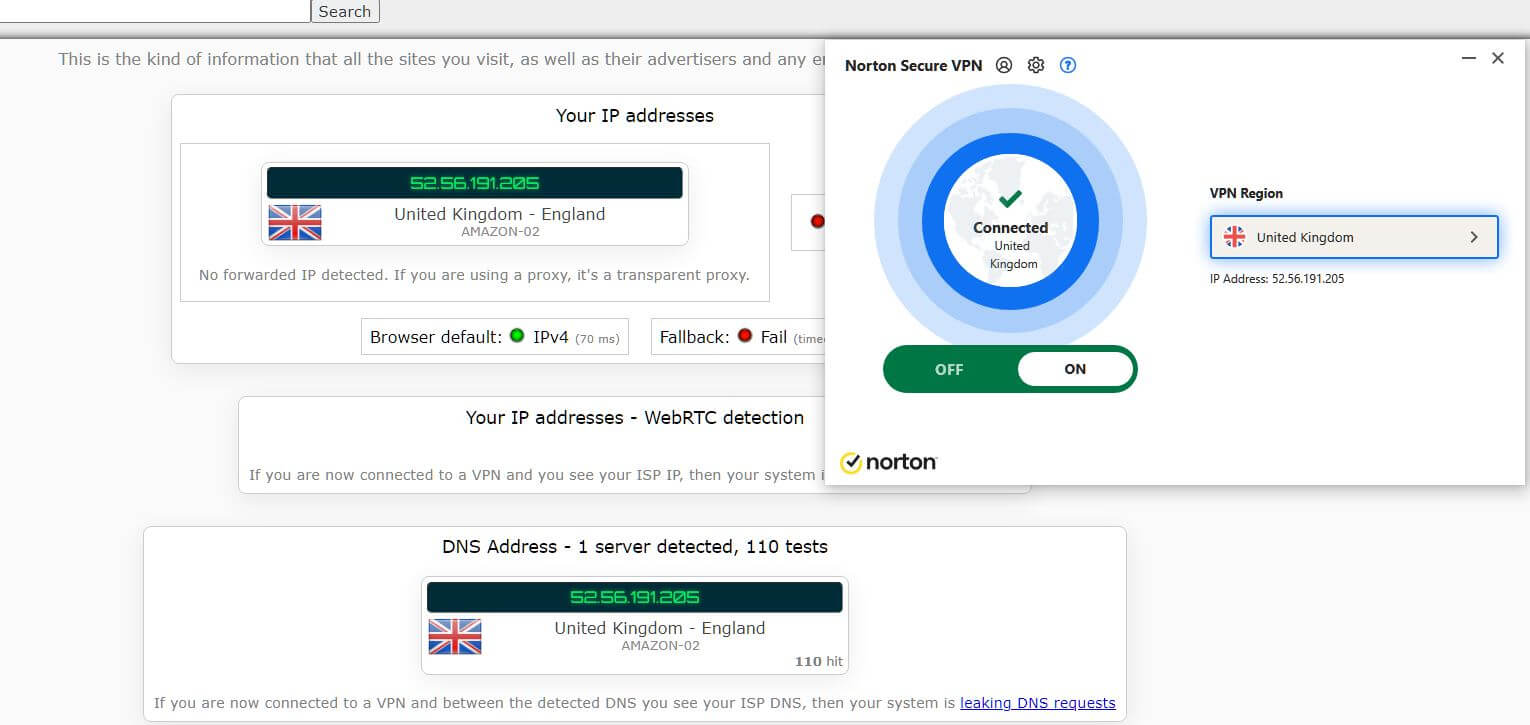
Once again, the provider showed great results when using a server in the UK, as I found no traces of my IP and DNS addresses. Last but not least, this VPN has servers in Japan (but it is far from being the best VPN for Japan), so I tested one of them with great success – take a look.
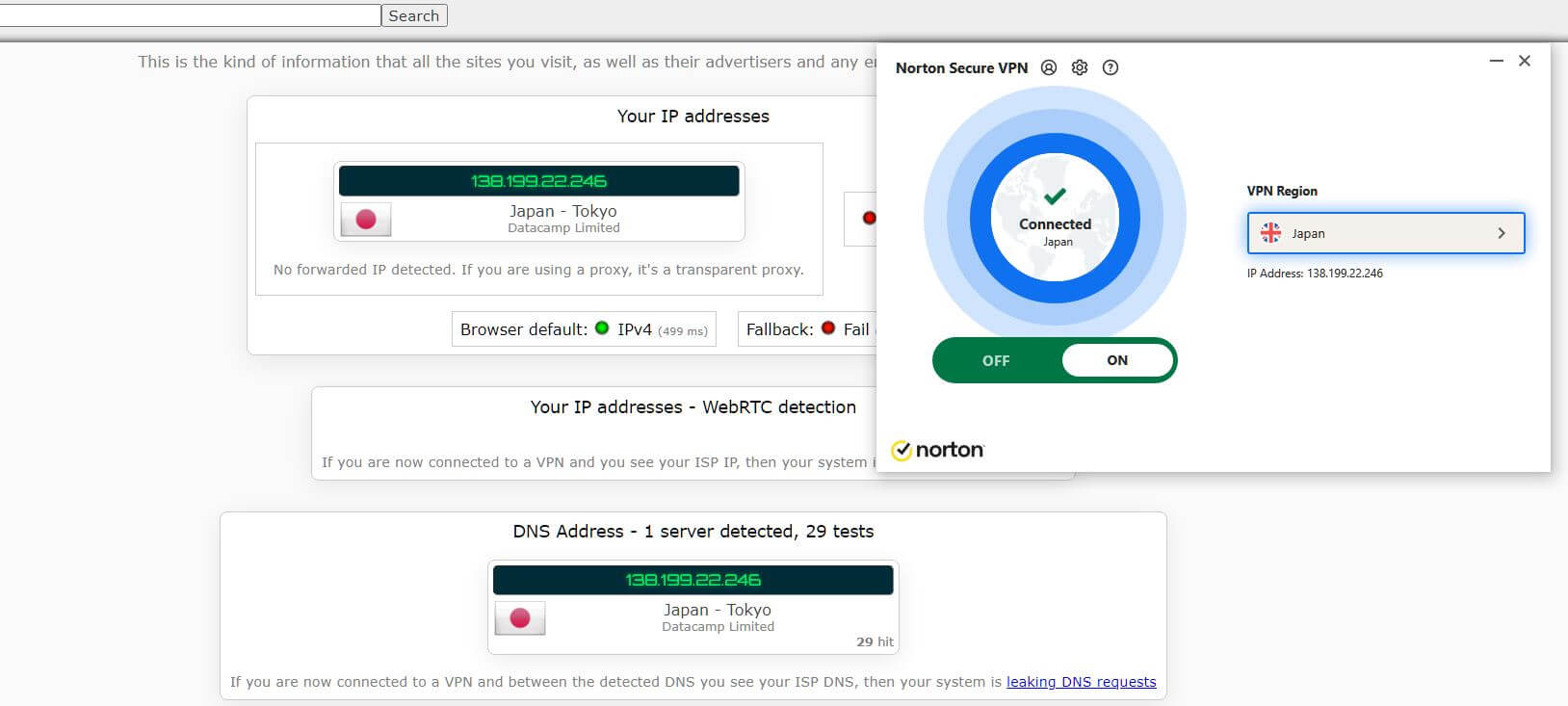
All in all, Norton Secure VPN shows an impressive performance in my IP/DNS leak tests, so at least in this regard, you’ll have no issues with it.
So Is Norton VPN Safe to Use?
And this brings us to the grand finale of this analysis. So, is Norton Secure VPN safe and secure as it claims to be? The answer, unfortunately, is still NO. The provider offers a solid number of security features in the app and we can’t complain about its kill switch or Ad Tracker Blocker.
However, where it falls apart is the privacy policy, which is by no means a no-logs policy. The provider simply stores too much crucial information, which can even involve your IP and the websites you visit, which is worsened by the fact that it’s an American company.
All of this makes Norton VPN not a great option if you want uncompromising privacy and anonymity for torrenting, browsing, or streaming. I’d recommend ExpressVPN instead for that reason. This provider has a certified no-logs policy, more security features, and better performance in every sense.
It also comes with a big 49% discount for the annual plan and gives you 3 free months and a 30-day money-back guarantee. Thus, if you need a safe and secure VPN that won’t infringe on your privacy, ExpressVPN is a much better, yet only marginally more expensive option.